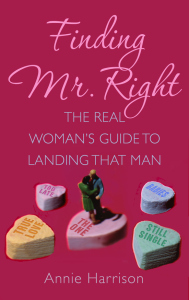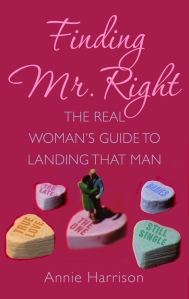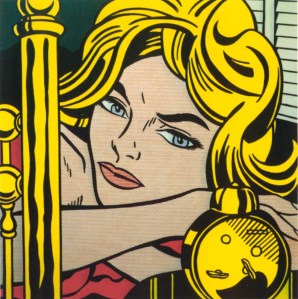Running shy of the bunny boilers
October 7, 2013
© Jacquie M Boyd
Tom is in his mid-forties. Handsome and sporty, he cuts an impressive figure, fly-surfing in the winter waves off the beach near his cliff-top home on the Sussex coast. Tom sold his medical supply business when he was 39: he was able to retire on the proceeds and pursue his sporting interests, travel and manage an extensive property portfolio. He was married, briefly, in his early thirties and doesn’t have children.
‘I’ve been called a lot of things in recent years: bastard, stringer, serial monogamist, time-waster and little boy lost – those are the printable descriptions. I have also been described as being emotionally immature, selfish, self-obsessed, narcissistic, a closet gay, also vain.
‘I suppose there’s no smoke without fire, but all these and other less than complimentary descriptions of my being have come exclusively from women I have been out with. This bewilders me as I can honestly say, hand on heart, that nobody else – friends, acquaintances, family, neighbours and former colleagues – would ever describe me in these terms. I’m quite a nice guy, really. These epithets all have to do with the fact that I openly enjoy being single and have no wish now, or as far as I can see in the future, to live with or marry a woman (or a man, for that matter).
‘There was nothing wrong with Julie (my wife), but I just found the institution of marriage stifling. I’m very controlling and found I couldn’t be accountable to another person. I agree that I lacked the emotional maturity and any sense of responsibility for somebody else: I was great at managing my business but utter pants at marriage! It felt like I couldn’t breathe and suddenly there was this pressure to become a father – my life became governed by fertility dates, thermometers and a calendar dictating when we must have sex.
‘As for children and babies, I have never wanted them. Julie didn’t ask, she just assumed that is what we would do – have kids. I grew up with two brothers and my father spent all his time philandering about with other women. He wasn’t really there with us to do boyish things like football and build tree houses. My memories of my parents’ marriage were of fights, shouting and tears, followed by a relentless and inevitable round of suitcases, taxis, slammed doors and separations. To me, marriage just didn’t look like a great prospect. I’m too selfish to be a husband or father – I enjoy my freedom and an uncomplicated existence too much.’
Although Tom has long been released from ‘the confines’, as he describes them, of marriage, he continues to find himself ‘fair game’ at the hands of an expanding group of women. According to him, ladies of a certain age, ‘can’t believe their luck’ when they stumble across this most eligible of men.
‘I don’t go looking for relationships, but they have a way of finding me. I may sound big-headed, but all the women I meet seem to think I am some kind of prize and I’ve been waiting all these years for her to show up. If I begin a relationship with someone, after a short while her eyes glaze over and she begins to think, as if she has some divine powers, ‘I can change him. No one else has been able to convert him into a husband and father, but I can!’ They look around my modern, minimalist house, fretting about the dangers of the cliff at the end of the garden and the open plan stairs, worrying about the safety of our – as yet – unborn children. Some have even secretly looked at property details so that we can move to a more family-orientated house.
‘I’m always straight with them. My feelings towards them are purely amatory – I don’t want anyone to move in, I don’t want to get engaged, married or have children, either in or out of wedlock. But this seems to make them more determined than ever. I’m also not interested in anyone who already has children. Why would I want to give up my surfing or golf so that I could take someone else’s kid to a party or a swimming lesson? I don’t want children of my own and I certainly don’t want to be responsible for anyone else’s.
‘I’m not looking for someone to share my life with, but my ideal woman would be financially independent, independent in nature and independent in spirit and without an urge to procreate. It’s not very romantic, I know, but I do feel victimised by every woman I meet. Perhaps my ideal woman would already be married to someone else, who has no intention of leaving and just wants a bit of fun.
‘I had a great time in my teens, twenties and early thirties, and always went out with women of roughly the same age. I may be emotionally immature, as I’ve said, but I really don’t want to hang out with women decades younger than me. I might be mistaken for being their dad! While I might still have concupiscent yearnings for nubile young women, I’d prefer to give clubbing and camping at rock festivals a miss. I do find the company of women in their thirties and forties most stimulating – they are more worldly. I just don’t want to settle down with them.
‘I haven’t gone so far as having a vasectomy, but I am extremely careful when it comes to sex. I don’t take any chances and am genuinely fearful that I will be tricked into making someone pregnant. A girlfriend sees that I’m wealthy and even if she decides to go-it-alone on the parent front, she knows there is some financial security waiting for her. If a relationship progresses (in my case beyond six weeks), the woman begins to feel I don’t trust her (which I don’t), and that creates tension. We split and then, often as not, she reveals her true colours by turning into a crazy bunny boiler.
‘I’m extremely wary of starting any kind of relationship. Women seem to interpret this fear as playing hard-to-get, and my ‘shyness’, as one 38-year-old put it, ‘is my most attractive quality.’ One-night stands fulfil a physical need, but I’m not in my twenties anymore, and there is something a bit grubby about just being in it for the sex.
‘This relationship thing does blight my life. I feel hunted. The more freedom I have, the more intense the hunt. I’m not like other guys, and I hate the feeling that I have to do so much rejecting and create so much disappointment after just a few months.’
Asked what would be his advice to women who are hoping to get married when they come across an eligible bachelor, who is proactively single, like himself, Tom replied: ‘Believe him if he is adamant he doesn’t want commitment. He will be very clear about this. True, there may be stringers out there who lead a merry dance but a large proportion of the blame must be attributed to women who have left it too late. These women are hell-bent on getting a wedding and a baby, and like some bonkers evangelist they set about trying to ‘convert’ male ‘candidates’ into husband material.
‘Single women in their late thirties and early forties who don’t want to be single are rapacious and scary. They come across as predatory and calculating, and try to get what they want through stealth. If a woman does find someone and the prospects for her look good, I would say, don’t force it. Don’t imagine a glorious summer wedding under silk-lined canvas when you’ve only just met. Guys may not be as intuitive as women, but they will read your mind on this one, you can be sure. Don’t sacrifice everything you have achieved so you can rush headlong into a relationship. What about being a bit aloof – make him curious about you? If you’re the right person and he thinks he might lose you, he’ll commit. If he lets you go, then it was never going to work anyway.’
I asked Tom if he thought the time would ever come when he would decide that he might like to settle down and have a family. Would he still be happy and fulfilled in twenty years’ time if he was on his own? ‘Who knows? I know I don’t!’ was his reply.
Two of Tom’s old flames from the 1980s (both now married with children), give their responses to this interview:
Rosie: ‘Oh Tom, what a wanker you have obviously become! You used to be such a dashing, gorgeous hunk and I really thought you loved women! You were always so bold and innovative in everything you did; you pursued the things you were passionate about. Now, you just sound like a narcissistic nutcase! I think you just want to hang onto all your money and keep away those gold-diggers and would-be yummy mummies itching to lay their hands on your cash and bear your children. Chill out, Tommy!’
Jessy: ‘Tom, you are so wrong! Wrong about women in general, and wrong about kids. .You obviously crave a lifestyle where you are served by other people in restaurants, as tenants, in your business – other people’s children in fact, yet you are blinkered to the joy that having your own children could bring. Ask any guy who’s a parent whether he would have preferred to be single, without a woman in his life and without his kids – I think you know the answer. Poor old Tom! You appear to be consumed by selfishness. So on second thoughts perhaps you would be a lousy dad and husband after all. Pity, back in 1986 you were quite a catch.’
Louise, who has never met Tom before, but read this interview, says: ‘I feel rather sorry for Tom. He has obviously been deeply traumatised by something in his life. As with women who become fixated on getting a man, Tom should relax a little and try not to be alarmed by every encounter he has.’
© Text Annie Harrison
Extracted from Finding Mr Right by Annie Harrison.
In compiling my book, Finding Mr Right, book I researched an abundance of literature, trawled the Internet and continuously interviewed. I have also gleaned snippets and vital pieces of information from many helpful people encountered along the way.
Throughout my research, I became, almost to the point of obsession, fascinated by how men and women who marry select each other. Today, microscopically small proportion marry the first person they meet: most play the dating field to a greater or lesser extent, and when the time is right, settle down with one person. OK, not everyone makes the right choice when they marry, and divorce statistics bear this out, but generally, there is an acknowledgement that ‘this person is the one for me’ and the question is popped.
For those women who have never been on the receiving end of a marriage proposal or who may have turned one or more down and are now unhappy about their single status, there are inevitable questions. As she lies alone, blinking into the darkness, the single woman audits the status of all close friends: who’s married, who’s engaged or co-habiting? Who’s got children or has a baby on the way? Invariably this is closely followed by ‘but what about me?’ moments.
Even in the 21st century, chivalry still decrees it is the man who asks and the woman who accepts. Through discussions with married men and a little help from the Internet, I have gleaned the following reasons why men choose their life partners. These observations aren’t based on any formal research on my part, but are backed up by the findings in John T Molloy’s fascinating work, Why Men Marry Some Women But Not Others.
Fundamental to a woman’s quest to find a husband is that she seeks out and gets close to the marrying kind. So who is the marrying kind of man?
• Many men in their early twenties adopt a promiscuous and peripatetic approach to women. There is a gradual transition to monogamy and stability as they progress into, and through their thirtysomething years.
• This nomadic relationship life phase wears off after a few years when men tire of the single life and their friends begin to stabilise in their relationships. The influence of peers is strong.
• Men working in the professional sector aged between the ages of 30 and 38 are the age group most likely to settle down, either through co-habiting or marrying. Before such a time frame, men in this category rarely consider permanency in their relationships.
• After 38, male levels of commitment diminish, plummeting after 43.
• When a man’s friends, colleagues and siblings start to get married, this triggers a domino effect. He doesn’t want to be left behind and is more likely to leap onto the marriage bandwagon than watch it roll past.
• Men’s lives are also governed by biological clocks that start to tick in their late thirties and early forties. They aren’t worried about being able to father a child, but they do want to be young enough to play actively with their children and encourage sport, adventure and fun. Men invariably imagine having sons with whom they can bond as fellow males, play football, go camping, ride bikes, etc. Therefore, men in this age bracket who say they want a family are ideal candidates for marriage.
• His own family life as child has a bearing on a man’s attitude to marriage later in life. A happy, stable childhood provides a firm foundation. I f his parents fought, bickered and divorced when he was young, then he may hesitate before formalising commitment.
• It’s obviously true that opposites attract, but statistically, marriages have a better chance of survival if the man and woman have similar backgrounds (socio-economic, religious and political) and are matched psychologically, professionally and spiritually with shared personal tastes and values.
• Don’t dismiss a good man out of court if he doesn’t initially impress you with his physical presence or mannerisms. You might not notice him at first because he has been dismissed many times in the past for his perceived failings. He might well be hiding a number of good points or they might get overlooked because you are not seeing him as he is. Many women I’ve interviewed have ‘discovered’ wonderful things about their partners as their relationships progressed. Be open-minded because these unpolished jewels are usually keeping the most attractive aspects of their personalities under wraps. Such men are often strong candidates for marriage. How many of your married friends’ husbands, in your opinion, are beyond perfection?
• Divorcees and widowers over the age of 40 are more likely to marry than their 40-year-old single counterparts.
So, to enhance your chances of finding a life partner, find and flirt with the marrying type. Meanwhile, steer well clear of the following:
Stringers or serial monogamists
Check out his track record and examine his state of independence. Does he value his own space too much and apart from the sex, how close does he get to the real you? Does he give off any commitment signals? Take his emotional temperature and if it’s cold, find someone else to warm the cockles of your heart.
Married men
If you are dating a married man, who still lives with his wife and family but promises to leave them, then you are being lied to: he won’t leave and he won’t set up home with you. If you do manage to marry him, beware. The excitement from the days of your clandestine assignations is likely to vanish because the chase and the secrecy will be over. How long will it be before he eschews monogamy and seeks sexual comfort elsewhere?
Mummies’ boys
It probably goes without saying, but try and avoid a man who still lives at home with mum. Men who have their own homes and have lived as self-supporting, independent adults are more likely to marry. And you wouldn’t want a mother-in-law moving in as part of the marriage deal, would you? Avoid a man with an Oedipus complex. No matter how wonderful you are, you won’t even come close to receiving the level of adulation he has for his mother.
Misers
Men who regard the institution of marriage as some kind of financial coup for women and a fiscal disaster for themselves are unlikely to marry, and don’t make good prospects either. Meanness is an unpleasant streak in anyone and marrying someone who regards his hard-earned fortune as ‘all mine’, protected with a lengthy pre-nup is unlikely to mellow or start to share. Run!
Extracted from Finding Mr Right – The Real Woman’s Guide to Landing That Man by Annie Harrison. Read the book to find out EXACTLY how hundreds of women in their late thirties finally ended up with their Mr Rights.
The difficulties of 21st-century dating
February 13, 2013
21st-century singledom is a baffling realm of non-date dates, non-relationship relationships, crossed wires and failed semantics. Rebecca Holman, a possibly single 29-year-old, reports.

By Rebecca Holman, published in The Daily Telegraph, February 13, 2013
I have called myself single for the past decade. Strange then, I realised recently, that I have rarely been properly on my own. I haven’t lived with a boyfriend, introduced anyone to my parents, or been on a mini-break. Yet even without an official ‘boyfriend’ there are normally several text conversations with potential beaus buzzing away on my phone.
I also tend to have a few guys on a low-level stalk on Facebook, and there’s always that frisson of excitement when an attractive man retweets one of my ‘LOLz-ier’ status updates. I might be missing out on love, but I’m never short of intrigue, and right now intrigue seems more fun.
Some of this intrigue even becomes actual, real-life, human interaction and perhaps… more. But mostly I’ve found myself in a perpetual state of limbo – stuck somewhere between first encounter, a hook-up and a full-blown relationship. It’s thanks in part to social media. Twitter, Facebook and Google have turned the dating world upside-down, changing how we meet people, what we know about them before we do – and introducing a new layer of ambiguity into single life that generations before us never had to contend with.
I am not in a relationship – or in what someone 20 years older than me would consider a relationship – yet rarely am I definitively single. There is not quite a word for what I am. Our vocabulary is straining as much as we are to encompass the world of modern dating.
Take the word ‘date’ itself. Recently The New York Times questioned whether traditional courtship was over, and whether ‘hanging out’ had replaced ‘dating’. Sounds familiar. Last Friday night I met four girlfriends for drinks after work. I was hoping also to hear from Paul. We’d met at a mutual friend’s party around Christmas, and had seen each other a couple of times since with friends. All week we’d been texting, messaging and emailing. We’d made vague plans to see each other that night. But by 7pm he still hadn’t texted.
Finally, at 8pm, my phone buzzed. ‘What are you up to?’ ‘Not much,’ I replied. ‘Drinks with the girls.’ ‘Want to meet us at my local?’ Reader, I went. I schlepped all the way across the city – only to spend the next three hours with Paul and about six of his friends. Dinner and drinks à deux it wasn’t.
Traditional ‘dating’? My generation doesn’t know how. I wasn’t the only one of my girlfriends to leave early that night. In fact, I can’t remember the last night out with my single friends where we all stayed until the end, or where we weren’t joined by a special guest at some point. And it isn’t simply a case of women being on the receiving end of the latest incarnation of male dating fecklessness. We follow the new rules as assiduously as they do, are just as uneasy about being pinned down, just as likely to be the texter as the textee.
If, like me, you’re a ‘millennial’ (born between 1983 and 2000) you will have never known adulthood – or adult relationships – without a mobile phone. Like me, you are probably so used to keeping your options open – and not deciding what you’re doing on a Friday night until about 6.59pm that evening – that the idea of ‘dating’ seems pretty foreign. Actually phone someone up to ask them out and agree on a date at some point in the future and put it in my diary? Unthinkable. What if I get a better offer? Instead, millennials like to keep it vague. Instead of dating (an American term anyway) we might be ‘seeing someone’, ‘having a thing’, ‘hooking up’. Increasingly, we ‘hang out’ – and not necessarily as a twosome.
Ours is a generation of contradictions. We bravely (recklessly?) let the rest of the world into our online world with gay abandon: you’d like to see 50 pictures of me on a bikini on the beach? Go ahead! Want to know how I’m feeling at this exact moment? Here you are! But in the world of endless options, where nothing seems permanent, and you never have to interact with anyone face to face if you don’t want to, me actually picking up the phone, telling someone how I feel about them, or even asking them out for dinner seems like too big a risk. Why make a phone-call or suggest a date when you can send a non-committal text that merely dangles the possibility of meeting? If they’re keen, you’ll see each other; if not, they’ll plead prior plans. No one’s feelings get hurt.
But at least one of you can end up feeling confused. The social psychologist Ben Voyer warns that while texting and online messaging are perceived to be easier than face-to-face contact or a telephone conversation, in the medium to long term they can make things more difficult. (Was last Friday a ‘date’? Your guess is as good as mine.)
‘Face-to-face contact is much richer. We have more visual and audio cues to help us form an impression of someone.’ Of course endless texting will never offer the same insight into someone’s personality as even a single face-to-face conversation. The I-don’t-know-what-is-going-on phase of a proto-relationship can continue far longer now. You can become vastly experienced in the heady yet confusing dance of Early Days – I have had years of it, and know all the steps – yet remain an ignoramus about the mysterious state of proper Girlfriend and Boyfriend.
Yet it’s so easy to get carried away with texting or instant messaging. Having just counselled a friend through an ambiguous ‘relationship’ characterised by furious text conversations and the occasional meet-up, I then found myself helping another friend decide what to wear when she met up with a man whose activities she’d been obsessively following on Facebook for months. So, how did it go? ‘It wasn’t as thrilling as I’d hoped it would be…’ admitted my friend afterwards. ‘I think he was a little tired.’
Such disappointment shouldn’t come as a surprise, says Emma Weighill-Baskerville, a psychotherapist and relationship specialist. ‘The person may not fulfil the fantasy created through literary communication alone – this is only one piece of an individual. With texts, you are allowing a large space for fantasy to take over.’
The common business of ‘researching’ potential dates on Facebook, Twitter and Google can lead to similar disappointment – especially for a generation like mine, who curate their Facebook pages to PR-worthy standards. One friend furiously edits her Facebook page when a man she likes accepts her friend request. ‘I don’t bother to use Facebook the rest of the time, but when someone interesting pops up I’m all over it, uploading flattering pictures, subjecting my friends to a barrage of witty status updates.’
As Voyer explains, ‘People are increasingly constructing two identities – their online identity, and their offline identity.’ He points to Twitter in particular, saying that ‘new ways of interacting have widened the gap between our actual selves – who we actually are – and our “ought” selves – who we think other people want us to be.’
So, proper, honest, face-to-face communication is key. Unfortunately, for a generation practically weaned on telecommunication devices, person-to-person communication is not exactly our strong suit – as evidenced by a stand-up argument I recently had with a man I was seeing. We were having a drink in the pub when I referred to him, to his face, as my boyfriend.
‘I’m not your boyfriend – I never said I was!’ he exclaimed, panic rising in his voice.
‘Well, what are we then?’
‘We’re friends – you’re my friend.’
At this point, I’d been sleeping with this man for… well, far longer than I care to admit; yet most of our communication was via text message or drunken conversations at the end of the night. In retrospect, it was clear that our ‘relationship’ was no such thing, that he wasn’t willing to give me what I wanted and deserved.
But I’d missed this fact entirely because I’d read what I wanted to into his messages – and because we were in constant communication. To my mind, I was never that pitiful caricature of a desperate woman, waiting by the telephone for him to call; we texted, Facebooked or emailed every day. He always seemed available, even when he wasn’t.
It’s not all bad, of course. Plenty of couples owe their entire relationships to technology. Anna Williams, a 29-year-old writer, met her boyfriend on Twitter. ‘I’ve met a few guys that way – it’s much easier to take a risk because you can pass it off as banter if you get rejected. I met my boyfriend when he started “following” me. We started messaging each other and, eventually, I invited him to a night out I was already going to.’
For Anna, the constant tweeting and messaging took the stress out of the first date. ‘It felt more like fourth-date territory when we met. I’m not sure we’d have got together if we’d met randomly in a bar – if I hadn’t already known he was a nice guy, there would have been nothing to separate him from some random bloke trying it on.’
My current problem is less about the new men in my life and more about the men who just won’t leave it. Occasionally, I’ll see someone once or twice, then decide they’re not for me. But instead of politely disappearing off the edge of the earth and never being seen again as in the Olde Days (1996), these men are now my Facebook friends. And their numbers are saved on my phone and in my iCloud and probably engraved on my spleen until the end of time. In a world where we can stay in touch with anyone we ever meet, indefinitely, it’s easy for quality control to go. If I’m bored or lonely, there’s always a temptation to reconnect.
Perhaps among all those frogs there was actually a prince? Some experts worry that technology and the ‘hook-up’ culture it supports are producing a generation that doesn’t know how to form proper relationships. I’m finding it hard to get too worked up about this just yet.
At 29, I’m very happy with my life – it’s fun and fulfilling and I rarely feel lonely. But I do wonder why my relationships (or whatever we’re calling them this week), fizzle out so easily.
I’m definitely as much to blame as any of the men I meet – I’m often unwilling to make the space in my life a relationship needs inorder to thrive. Maybe this will all change when I meet the right man (after all, chemistry’s got to count for something), or maybe my brain has just been rewired to expect every interaction I have to come with minimum effort and no real depth.
Emma Weighill-Baskerville believes we risk becoming emotionally stunted by our reliance on texting and instant messaging. ‘As a nation we’re learning that it’s better to dismiss uncomfortable feelings and take an avoidant approach. Whereas learning to deal with uncomfortable conversations and not avoid them are fundamental parts of growth and emotional maturity.’
Which is partly why I decided this week to stop all text communication with the man I’m sort-of seeing, unless it was to arrange a date. And it seems to have worked. As soon as I finish writing this, we’re meeting for dinner. Just the two of us.
Find out more about dating for thirtysomethings in Finding Mr Right: The Real Woman’s Guide to Landing That Man by Annie Harrison.
Literally discriminating against single women
January 8, 2013
Consider these words from Roget’s Thesaurus under the headings relating to
marriage:
partnered, paired, mated, matched, tied, spliced, hitched, in double harness, espoused, wedded, united, made man and wife, made one, joined in holy matrimony, ‘bone of one’s bones and flesh of one’s flesh’, monogamous, just married, newly married, newly wed, honeymooning, find a husband, ask for the hand of, quit the single state, renounce bachelorhood, take the plunge, get married, accept a proposal, one’s promised, bride, nuptials, plight one’s troth, become engaged, engagement ring, lead to the altar, walk down the aisle, wedding day, say ‘I do’, betroth, affiance, espouse, bestow in marriage, join in marriage, make fast in wedlock, declare man and wife, join, tie the knot, love, be loved, pair off, mate, couple, co-habit, live together, set up house together, share bed, live as man and wife, marry well, make a good match, make love, wedded bliss, conjugal, partner, friend, other half, beloved, dearest, true love, love match, love of my life, have and to hold, adore, worship, only have eyes for, live for, passion, love to distraction, fancy, be sweet on, carry a torch for, crazy over, woo, court, captivate, desire, the one, darling, sweetheart, cherish, embrace, husband and wife, couple, two, pair, partnership, team, union, better half, soul mate, alliance, spouse, life partner, Mr and Mrs, wedding ring, marriage.
This list is all very cosy with a touch of smugness about it. Now consider the words to describe
an unmarried woman:
Miss, femme sole, solo, alone, maid unwed, single, lonely-heart, available, one, mateless, spouseless, husbandless, on the shelf, shelf-bound, free, past sell-by date, Bridget Jones, frump, heart-whole, fancy-free, independent, maidenly, old maid, maiden aunt, virgin, virginal, virgo intacta, pure, spinster, spinsterlike, spinsterish, old-maidish, bachelor girl, celibate, nunnish, nunlike unwooed, unloved, unmated, unasked, unmarried, uncaught, unwed, unaccompanied, unattached, unescorted, unpartnered, wallflower, never the bride, live in single blessedness, loner, not the marrying kind, singleton, off the radar, recluse, refuse marriage, refuse all offers, keep heart-whole, remain fancy-free, have no offers, receive no proposals, live like a hermit, take the veil, still waiting.
There are fewer words to describe the single state, but aren’t they harsh? It would seem that even the English language in all its richness, has it in for the single woman.
Article by Annie Harrison, author of Finding Mr Right: The Real Woman’s Guide to Landing That Man
Images Roy Lichtenstein














